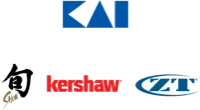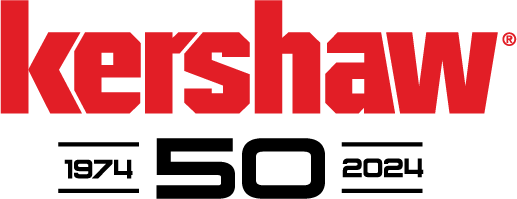We use cookies to make your experience better. To comply with the new e-Privacy directive, we need to ask for your consent to set the cookies. Learn more.

Automatic Knife Release Form
You must read and fill out this form before Kai USA, Ltd. can sell to you, or ship to you, any Automatic or Butterfly Knives. By electronically signing this online form, you confirm that you are in compliance with the federal statutes shown below as well as any applicable state and local regulation.
By placing an order or receiving a product service (such as warranty repair service) from us, you agree that you meet any or all of the following criteria:
APPLICABLE FEDERAL STATUTES
18 U.S.C. § 1716 (G) (2) (1-4) provides, in summary:
Switchblade (automatic) knives can be shipped to civilian and armed forces supply or procurement officers and employees of the federal government ordering or procuring or purchasing such knives in connection with activities of the Federal government; to supply or procurement officers in the National Guard, the Air National Guard or militia of the state or territory of the District of Columbia ordering, procuring or purchasing such knives in connections with the activities of such organizations; to supply or procurement officers or employees of the municipal government of the District of Columbia or the government of any state or territory of any county, city or other political subdivision of a state or territory ordering, procuring or purchasing such knives in connection with the activities of such government.
15 U.S.C. § 1244 provides, in summary:
Knives can be shipped by common carrier; that sale, transportation or distribution, possession or introduction into interstate commerce of switchblade knives is authorized if it is pursuant to a contract with the armed forces; or, any member or employee thereof acting in the performance of his or her duty may possess switchblade knives and may have them shipped to him and sold to him or her. The possession and transportation upon his or her person of a switchblade knife or a blade 3 inches or less is authorized to any handicapped individual who has the use of only one arm.
STATE LAW PROVISIONS
It would be impossible to provide an exhaustive review of the laws that may apply in the various fifty states and in the various counties, parishes, municipalities, and other political subdivisions within each state. By signing this form below, you will be certifying that in addition to complying with federal law, you have determined which, if any, state or local laws apply to you, and that you are acting in compliance with those laws.
No Post Office Box addresses can be used on this form. Item(s) must be sent in going UPS or Fed Ex. No USPS shipments will be accepted. If the address that you have filled out on this form is no longer a valid address, you must contact us and fill out a new form.
f-18 form successfully submitted
A confirmation will be sent to your email shortly. You can find your signed form in your Account.
Please note, you cannot add to cart without signing the f-18 agreement


- 1800 SW Teton Avenue
- Tualatin, OR 97062
- Phone: 503-682-1966
- Toll Free: 800-325-2891
- Fax: 503-682-7168
- kaiusa.com
Blade Steels
Kershaw blades are made from a range of steels, each with their own strengths in edge retention, corrosion resistance, and sharpening ease.
CPM M4
The formula for this premium tool steel includes high amounts of vanadium and molybdenum. This composition creates exceptional edge retention and toughness.
HRC: 60-62
TOUGHNESS: 7/10
EDGE RETENTION: 9/10
CORROSION RESISTANCE: 2/10
SHARPENING EASE: 3/10


CPM MagnaCut
This Crucible powdered metallurgy steel eliminates chronium during heat treatment, allowing for vanadium and niobium to form greater carbides near the cutting edge. This formula creates an exceptional balance of edge retention, toughness, and corrosion resistance.
HRC: 62-64
TOUGHNESS: 8/10
EDGE RETENTION: 7.5/10
CORROSION RESISTANCE: 9/10
SHARPENING EASE: 2/10


CPM 20CV
This Crucible powdered metallurgy tool steel has a high volume of vanadium carbides for exceptional wear resistance and edge retention. The highest level of chromium of any high-vanadium steel gives it excellent corrosion resistance.
HRC: 59–61
TOUGHNESS: 6/10
EDGE RETENTION: 9/10
CORROSION RESISTANCE: 7/10
SHARPENING EASE: 2/10


CPM S35VN
Crucible's S35VN modifies the formula of S30V for enhanced toughness and resistance to edge chipping with no loss of wear resistance. Its formula promotes the formation of niobium carbides along with the vanadium and chromium carbides. It provides a sharper, longer lasting edge.
HRC: 60-62
TOUGHNESS: 6/10
EDGE RETENTION: 8/10
CORROSION RESISTANCE: 7/10
SHARPENING EASE: 5/10


CPM S30V
Large carbides in this all-around premium knife steel make it take and hold an edge extremely well; it is also very tough and wear resistant.
HRC: 59.5–61
TOUGHNESS: 5/10
EDGE RETENTION: 7/10
CORROSION RESISTANCE: 7/10
SHARPENING EASE: 5/10


CPM 154
This powdered metallurgy steel has a more uniform distribution of carbides, so it takes and holds an excellent edge. Also offers good corrosion resistance, wear resistance, and toughness.
HRC: 58–60
TOUGHNESS: 4/10
EDGE RETENTION: 6/10
CORROSION RESISTANCE: 6/10
SHARPENING EASE: 5/10


14C28N
This high-performance steel was developed in a partnership between Kershaw and a Swedish engineering company specializing in stainless and special steel alloys. 14C28N offers excellent corrosion resistance.
HRC: 58–60
TOUGHNESS: 6/10
EDGE RETENTION: 4/10
CORROSION RESISTANCE: 6/10
SHARPENING EASE: 6/10


D2
This “semi-stainless” tool steel is known for excellent edge retention, wear resistance, and good toughness.
HRC: 59–60
TOUGHNESS: 6/10
EDGE RETENTION: 8/10
CORROSION RESISTANCE: 2/10
SHARPENING EASE: 3/10


8Cr13MoV
Kershaw precision heat-treats 8Cr13MoV steel to bring out its very best high-performance characteristics: the ability to take and hold an edge, strength, and hardness.
HRC: 57–59
EDGE RETENTION: 3/10
CORROSION RESISTANCE: 3/10
SHARPENING EASE: 8/10


8Cr14MoV
The formula for this steel has additional chromium for added stain resistance. It also benefits from Kershaw’s expertise in precision heat treatment.
HRC: 58–59
7Cr17Mov
Similar to 440A stainless steel, but with a formula that has added molybdenum and vanadium to improve hardness and wear resistance.
HRC: 57–59
420HC
This modified 420 steel has higher amounts of carbon and chromium to boost hardenability and corrosion resistance. It is an excellent everyday steel: tough, corrosion resistant, easy to sharpen, and takes a good edge.
HRC: 58
EDGE RETENTION: 3/10
CORROSION RESISTANCE: 7/10
SHARPENING EASE: 9/10


420J
Highly stain resistant, but ductile, this steel is excellent for use where “flex” is desirable, for example, in fillet knives.
HRC: 56–58
EDGE RETENTION: 2/10
CORROSION RESISTANCE: 8/10
SHARPENING EASE: 9/10


Din 1.4116
Exceptionally corrosion resistant and very tough, this German stainless steel is one of the most popular steels for kitchen knives. It is very easy to re-sharpen when the time comes.
HRC: 55–57
65Mn
A tough, durable carbon steel designed for hard-use tools such as Kershaw’s Camp Series machetes.
HRC: 56
3Cr13
A value-priced high-chromium stainless steel.
HRC: 54–56
4Cr14
A value-priced steel; very highly stain resistant.
HRC: 55–57
Steel Elements
| Carbon (C) | Chromium (Cr) | Molybdenum (Mo) | Vanadium (V) | Tungsten (W) | Cobalt (Co) | Nickel (Ni) | Manganese (Mn) | Silicon (Si) | Sulphur (S) | Phosphous (P) | Copper (Cu) | Niobium (Nb) | Nitrogen (N) | |
|---|---|---|---|---|---|---|---|---|---|---|---|---|---|---|
| CPM M4 | 1.4% | 4% | 5.2% | 4% | 5.5% | – | – | 0.3% | 0.55% | 0.06% | 0.03% | – | 2 | 0.2% |
| CPM MagnaCut | 1.15% | 10.7% | 2% | 4% | - | – | – | - | - | – | – | – | 2% | 0.2% |
| CPM 20CV | 1.9% | 20% | 1% | 4% | 0.6% | – | – | 0.3% | 0.3% | – | – | – | – | – |
| CPM S30V | 1.45% | 14% | 2% | 4% | – | – | – | – | – | – | – | – | – | 0.2% |
| CPM 154 | 1.05% | 14% | 4% | – | – | – | – | – | – | – | – | – | – | – |
| 14C28N | 0.62% | 14% | 0.55% | – | – | – | – | – | 0.25% | 0.015% | 0.03% | – | – | 0.08% |
| 8Cr13MoV | 0.8% | 13% | 0.15% | 0.1% | – | – | 0.2% | 0.4% | 0.5% | 0.01% | 0.02% | – | – | – |
| 8Cr14MoV | 0.75–0.8% | 13.5–14% | 0.20–0.25% | 0.10–0.15% | – | – | – | 0.3–0.6% | 0.3–0.6% | 0.03% | 0.035% | – | – | – |
| 420J | 0.4–0.5% | 12–14% | 0.6% | 0.18% | – | – | – | 0.8% | 1% | 0.02% | 0.05% | – | – | – |
| 420HC | 0.46% | 13% | – | 0.3% | – | – | – | 0.4% | 0.4% | - | – | – | – | – |
| D2 | 1.4–1.6% | 11–13% | 0.7–1.2% | 1.1% | – | – | 0.3% | 0.6% | 0.6% | – | – | – | – | – |
| DIN 1.4116 | 0.45–0.55% | 14–15% | 0.5–0.8% | 0.1–0.2% | – | – | – | 1 | 1 | 0.015% | 0.04% | – | – | – |
| 65Mn | 0.57–0.70% | – | – | – | – | – | – | 0.6–0.9% | – | 0.05% | 0.04% | – | – | – |
| 3Cr13 | 0.35% | 13.5% | 0.6% | – | – | – | 0.5% | 0.5% | 0.8% | – | – | – | – | – |
| 4Cr14 | 0.38% | 13.94% | 0.12% | 0.08% | – | – | 0.14% | 0.41% | 0.41% | 0.003% | 0.02% | – | – | – |
